Strict Chinese travel rules keep Uyghur families divided across borders
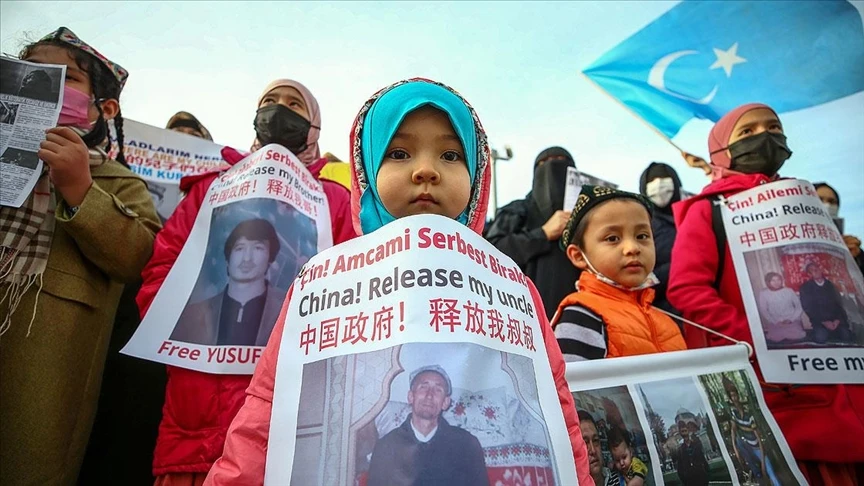 Uyghur child protesting in front of Chinese Consulate, Istanbul, February 2021. (AA Photo)
Uyghur child protesting in front of Chinese Consulate, Istanbul, February 2021. (AA Photo)
In a comprehensive investigation released Monday, Human Rights Watch revealed that Chinese authorities have established an elaborate system of conditional travel permissions for Uyghurs from Xinjiang, marking what researchers describe as a calculated shift from outright prohibition to heavily monitored movement.
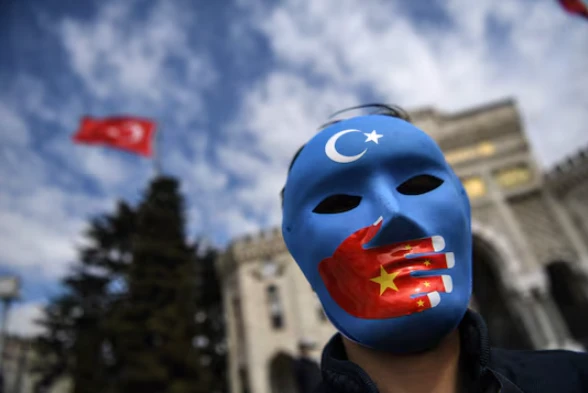
The investigation, drawing from interviews with 23 Uyghurs across nine countries conducted between October 2024 and February 2025, details how Beijing has begun selectively returning confiscated passports and granting limited travel permissions while maintaining rigid control through an intricate web of restrictions and surveillance.
“The modest thaw in China’s travel restrictions has allowed some Uyghurs to briefly reunite with loved ones abroad after having no news for years,” said Yalkun Uluyol, China researcher at Human Rights Watch. “But the Chinese government’s travel restrictions are still used to oppress Uyghurs in Xinjiang and in the diaspora.”
Passport pipeline for Uyghurs
The report outlines a stringent application process for Uyghurs seeking to travel abroad. Applicants must provide detailed documentation including the purpose of travel, and those citing family visits must furnish invitations from relatives abroad, complete with personal information, addresses, and work status.
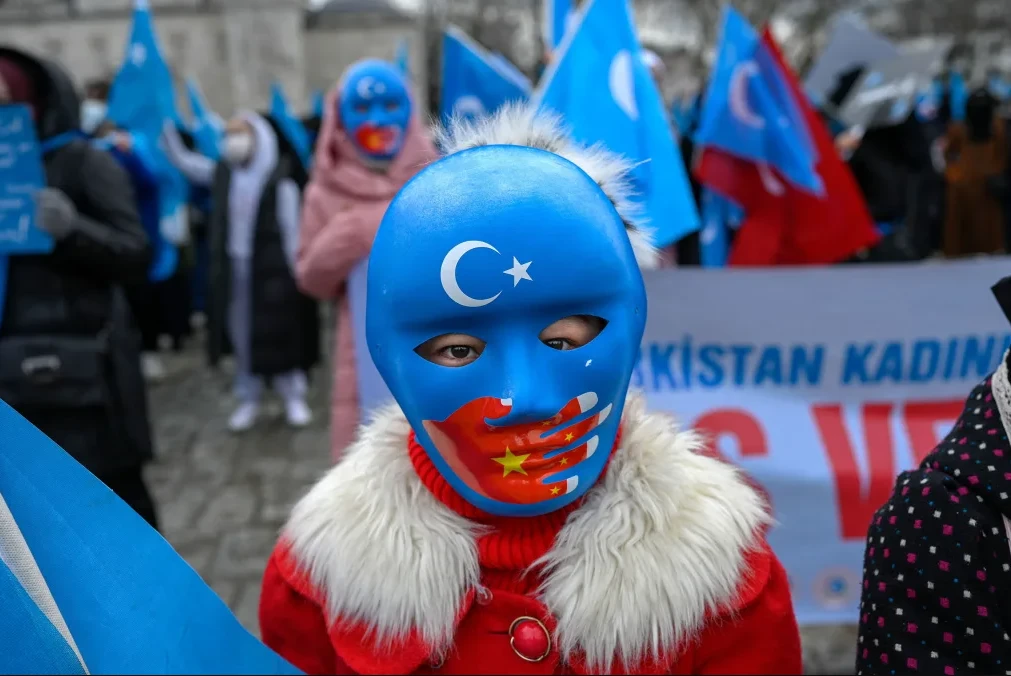
Most notably, authorities have implemented a “one person per family” rule for international travel. As one Uyghur described in the report, their father received permission to travel for just one month, with vague suggestions that their mother “might be able to travel” upon his return—a promise that remained unfulfilled.
“The authorities only allowed him to go,” the individual told researchers. “They said, ‘your wife might be able to travel once you are back.'” Despite complying with all requirements and returning on schedule, the family’s request for the mother’s passport was subsequently denied.
The system implements strict geographic limitations on Uyghur movement. Business travelers face particular constraints, permitted only to visit specific countries such as Kazakhstan while being explicitly barred from entering what authorities term “sensitive countries”—notably those with significant Muslim populations, such as Türkiye.
Chinese government surveillance and control over Uyghurs
Those granted permission to travel must accept comprehensive monitoring of their activities abroad. The report documents how travelers are assigned government officials who regularly check in on their activities and movements. Upon return, travelers face detailed interrogations about their activities and contacts abroad.
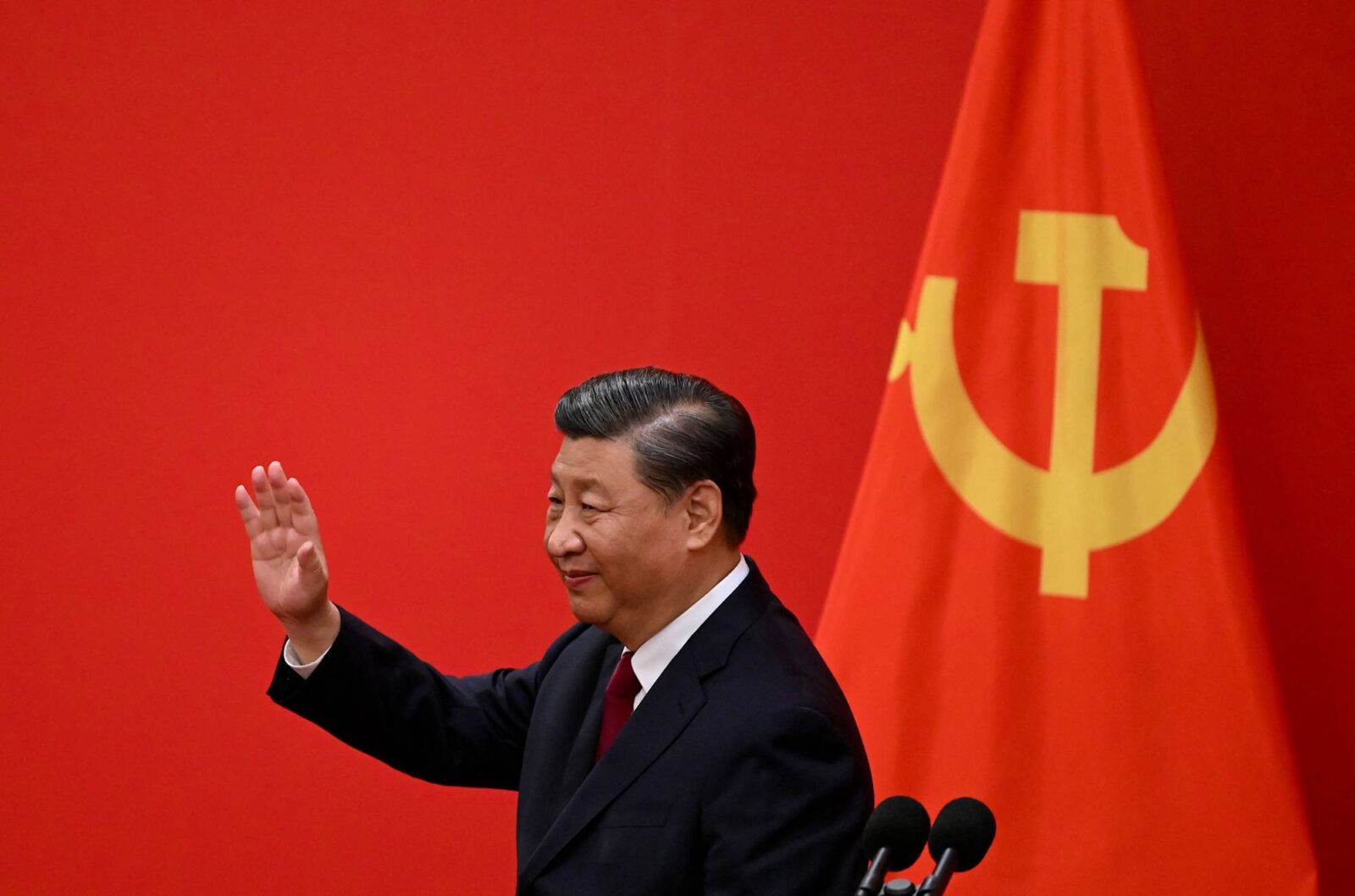
One interviewee described their father’s experience after returning to Xinjiang: “Officials from the neighborhood committee, the local police station, and the public security bureau visited my father after his return. They asked about whom he met, where he went, and what he told people.”
A particularly controlling aspect of the new system is the requirement for travelers to provide a “guarantor”—typically a government official who vouches for their compliance with travel restrictions. This guarantor faces potential punishment if the traveler violates any conditions, effectively creating a system of shared liability that extends beyond the individual.
Uyghurs abroad have little to no means to obtain news of their families
The report highlights that even these limited travel permissions are not uniformly available across Xinjiang. Residents of Urumqi, the capital, and two other cities in northern Xinjiang appear to have greater access to travel permissions, while most Uyghurs throughout the region remain unable to leave.
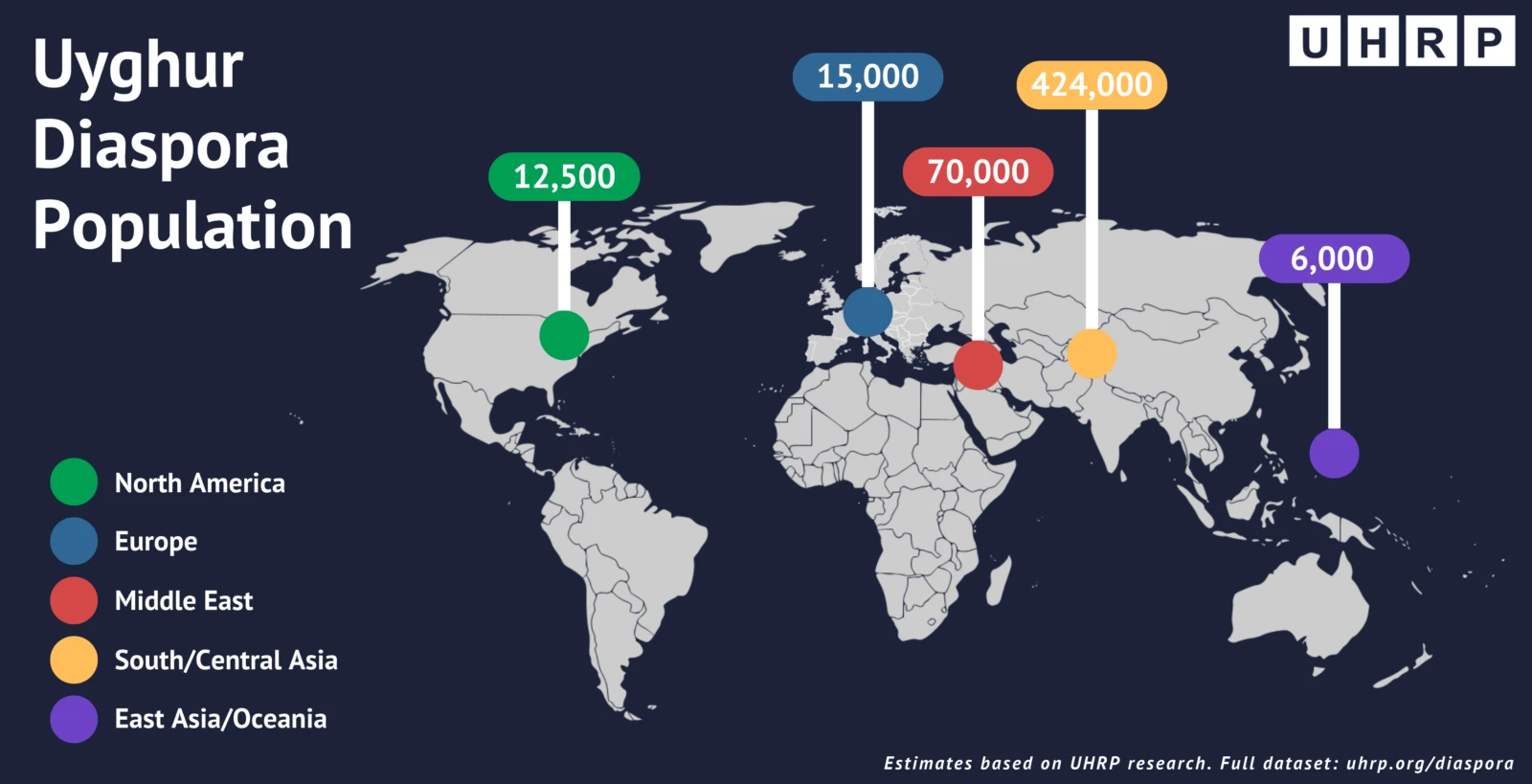
Many Uyghurs living abroad continue to have no news of their families, particularly those with relatives serving long-term imprisonment. The system appears designed to maintain what Human Rights Watch describes as a careful balance between presenting an image of increased freedom while maintaining strict control over the Uyghur population.
The Human Rights Watch report reveals an intricate system of state-managed visits and propaganda tours designed to control how Uyghurs from abroad can return to Xinjiang, offering a glimpse into Beijing’s efforts to manage international perceptions of the region.
Application process involves strict surveillance and vetting
According to the investigation, Chinese diplomatic missions are actively directing Uyghurs living abroad toward officially organized tours hosted by the Xinjiang United Front Work Department, a Chinese Communist Party organization.
The application process for these tours involves extensive surveillance and vetting, requiring participants to submit their Chinese national identity cards, passports, and former Xinjiang home addresses.

The approval process spans multiple security agencies, including local police stations, public security bureaus, counterterrorism units, and neighborhood committees. For Uyghurs holding foreign passports, participation comes with an additional requirement: they must renounce their Chinese citizenship.
“I didn’t know if I would ever have another chance to see my family, which is why I chose to participate in the tour,” one participant told researchers. “I realized everything was orchestrated, the tour was closely surveilled by police, and I had to ask for permission from the neighborhood committee and the local police to stay with my family after the tour.”
Scripted narrative for visitors, controlled experience from start to finish
Tour participants described a tightly controlled environment where even basic interactions were monitored and managed. According to multiple interviewees, participants were required to:
- Speak Mandarin Chinese, even in private conversations among themselves
- Seek permission for family visits
- Participate in mandatory propaganda activities
- Read from prepared scripts praising Communist Party policies in Xinjiang
One participant detailed the experience: “We were welcomed by the United Front Work Department in Xinjiang. Everyone in the group were Uyghurs, the tour guides were also Uyghurs. But everyone was asked to speak in Chinese. We visited shops, museums, and mosques, like a typical propaganda tour that you can watch on YouTube.”

Despite the carefully managed presentations, some visitors reported noticing significant changes in the region. “Everything looked faked and was prepared for us,” one interviewee said. “But when I was able to walk around the city, I could see the empty mosques, men without beards, little kids who could no longer speak Uyghur. I could hardly recognize the city I once knew.”
Challenges for Uyghurs traveling independently
For Uyghurs attempting to visit independently, the process presents different but equally significant challenges. Even those holding foreign passports eligible for visa-free entry to China must undergo extensive background checks and obtain prior approval from neighborhood committees and local police in their family’s area.
The report documents cases where visitors were required to stay in hotels rather than family homes, faced regular questioning and were subjected to movement restrictions within Xinjiang. The visa application process for those requiring one can extend up to six months, with detailed background investigations conducted by Chinese diplomatic missions abroad.
Surveillance of Uyghur diaspora activities
The monitoring extends to Uyghurs’ activities in their adopted countries. The report documents cases where participation in cultural activities abroad resulted in visa denials. A teacher at a Uyghur language school reported that parents were warned that sending their children to learn their native language could jeopardize their ability to visit family in Xinjiang.
The investigation reveals how these controlled visits serve a dual purpose: presenting an image of normalcy to the international community while maintaining strict oversight of the Uyghur diaspora’s connections to their homeland.
The Human Rights Watch report concludes with an examination of how China’s travel restrictions have created ripple effects throughout the global Uyghur diaspora while highlighting the international legal implications of these policies.

The investigation reveals how China’s travel policies have created deep divisions within Uyghur communities abroad. Those seeking to maintain contact with family in Xinjiang often feel pressured to distance themselves from cultural and community activities, fearing potential repercussions.
“At a recent wedding ceremony, the hosts requested some Uyghur activists not to come, as there were close relatives of the groom and bride traveling back and forth,” one interviewee reported. “It increases distrust among community members.”
The pressure has led to the collapse of cultural institutions in some areas. A Uyghur language school operating since 2014 was forced to close in January 2025 after parents withdrew their children, fearing visa denials for family members.
“At least two of our students’ parents were told by the Chinese police and the Chinese diplomatic missions that going to an Uyghur language school constitutes an ‘obstacle’ for their and their families’ travels,” a former teacher explained.
The report documents how the promise of family reunification has become a tool for controlling behavior in the diaspora. Many Uyghurs report self-censoring and avoiding community engagement to maintain the possibility of future travel permissions.
“People who have proved themselves loyal to the Chinese government are getting these ‘privileged’ visits,” one interviewee noted. “Political participation is decreasing as more people now have expectations to go back, and so they stay out of ‘trouble’ and follow what the government says.”
China’s obligations under ICCPR
The report examines how China’s policies conflict with international legal standards. While China’s Exit and Entry Administration Law allows authorities to prevent citizens from leaving the country if they “may endanger national security or interests,” international law sets strict limits on such restrictions.
Under Article 12 of the International Covenant on Civil and Political Rights (ICCPR), to which China is a signatory, “everyone shall be free to leave any country, including his own.” The U.N. Human Rights Committee has specifically stated that this right includes access to necessary travel documents.
Restrictions on this right must be:
- Non-discriminatory
- Necessary to achieve legitimate aims
- Proportionate
- The least restrictive measure possible
The report concludes that China’s current practices violate these standards through their arbitrary and discriminatory application to the Uyghur population.
For many in the diaspora, the situation remains dire despite the apparent thaw in restrictions. “Some people close to the Chinese diplomatic missions here asked me to visit the homeland with government-sponsored groups,” one Uyghur said.
“When I told them about my parents, who are now serving long prison terms for no reason, they stopped contacting me. I ask myself: do I have a family left to return to?”
Even those who manage brief reunions describe complex emotional responses. “It was unbelievable … At the same time, I felt extremely sad, remembering my friends who don’t even have contact with their families,” one person said after a short visit. “How could I act as if nothing happened during the last seven years?”



